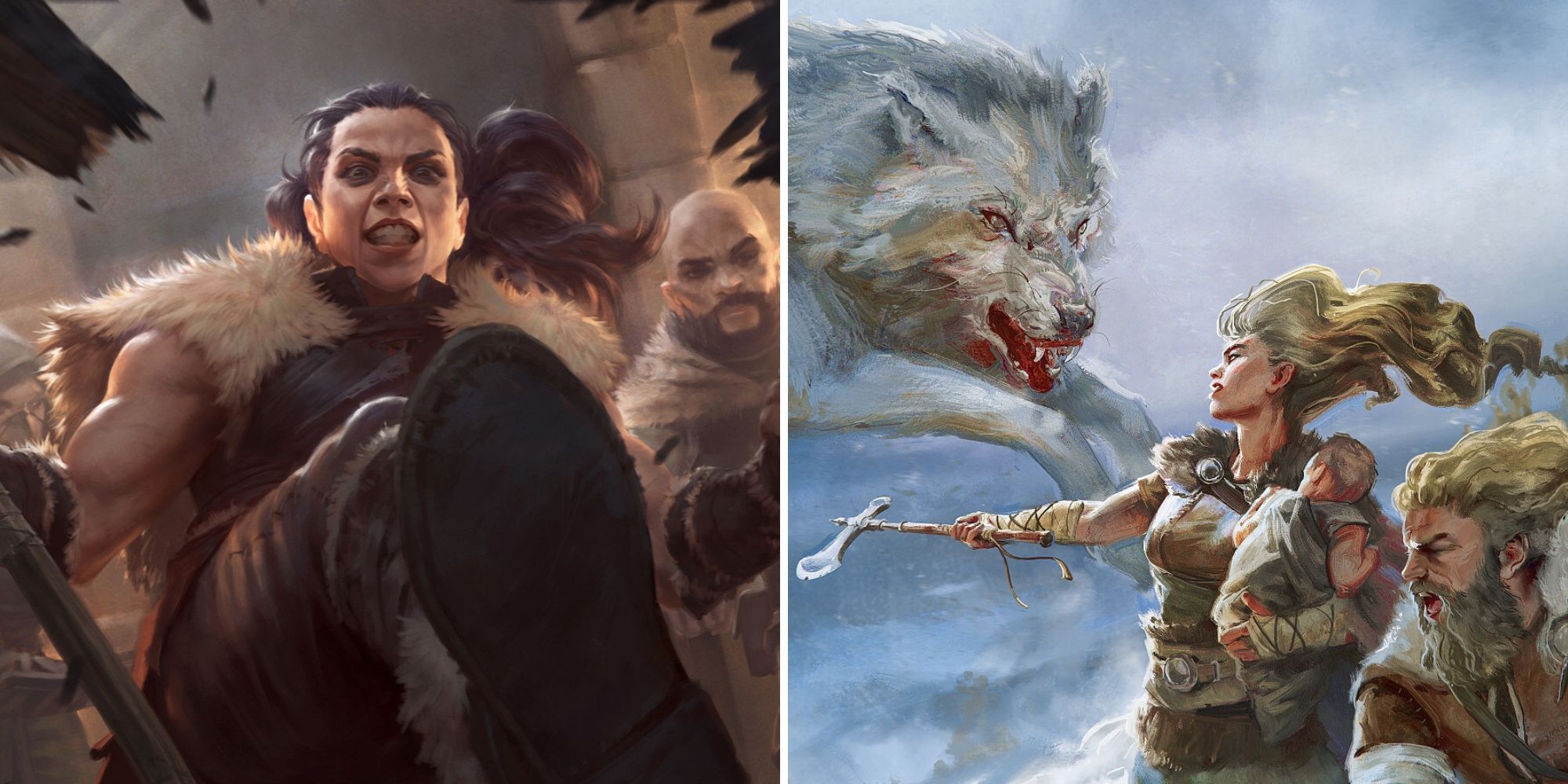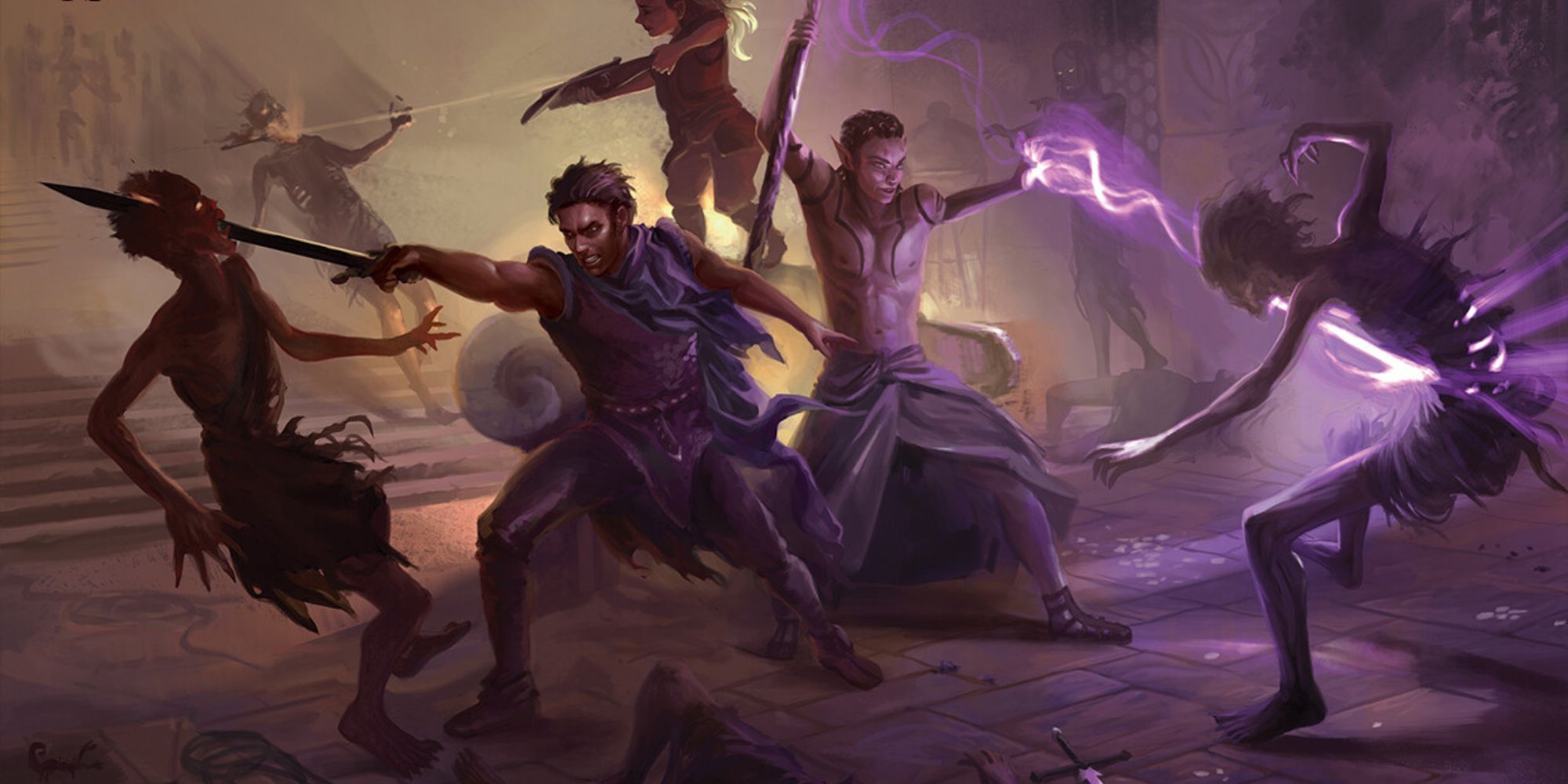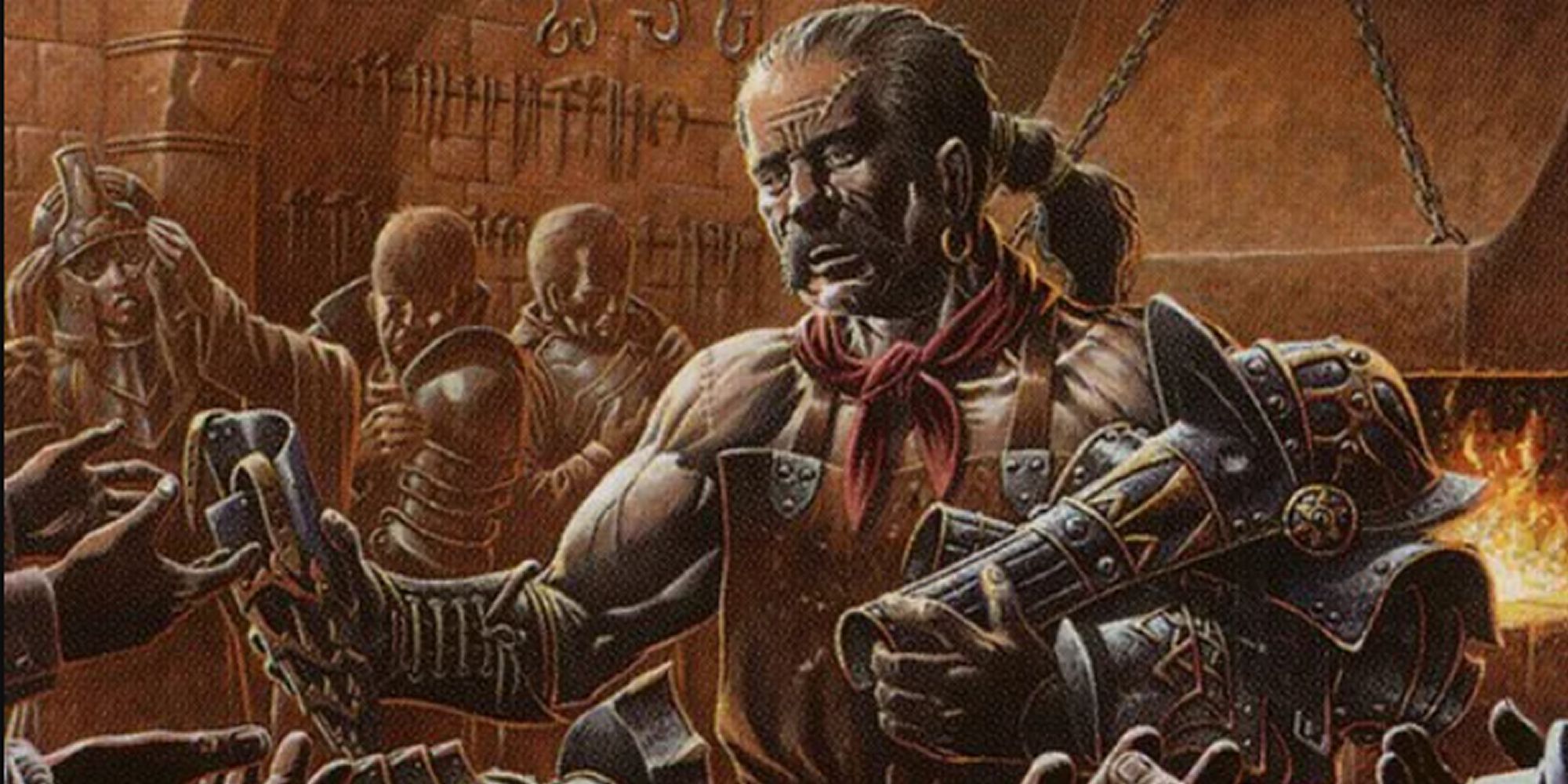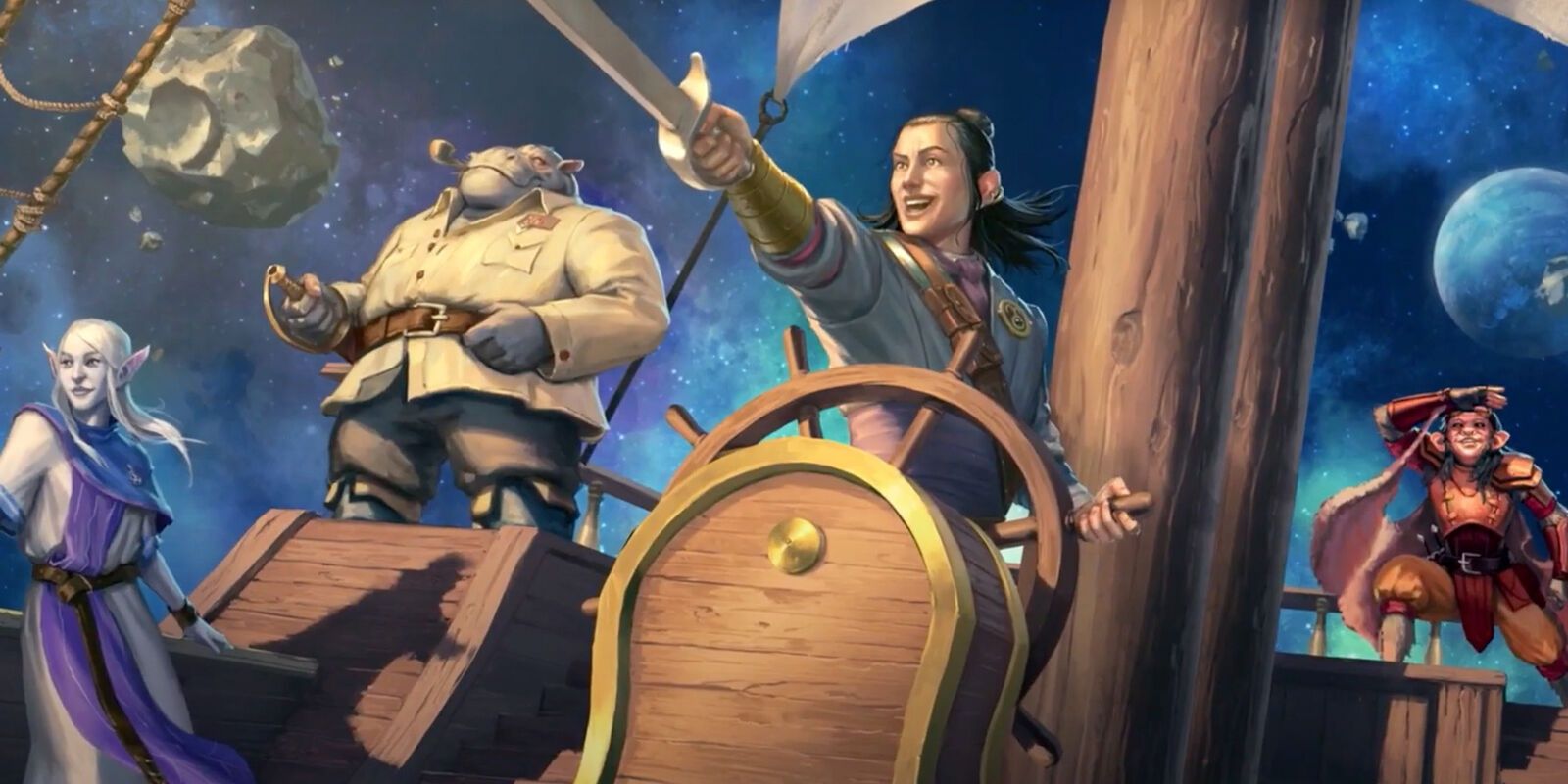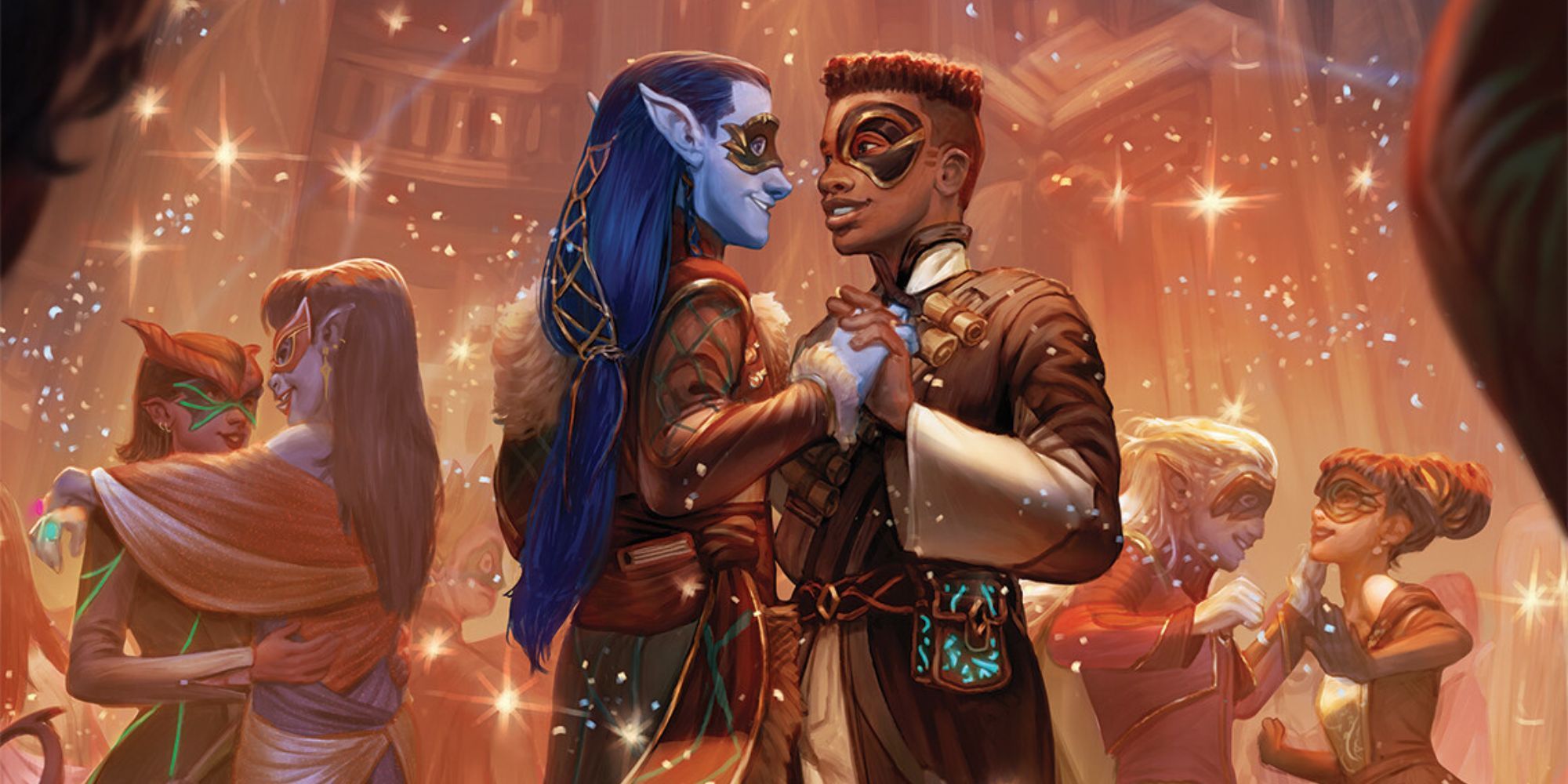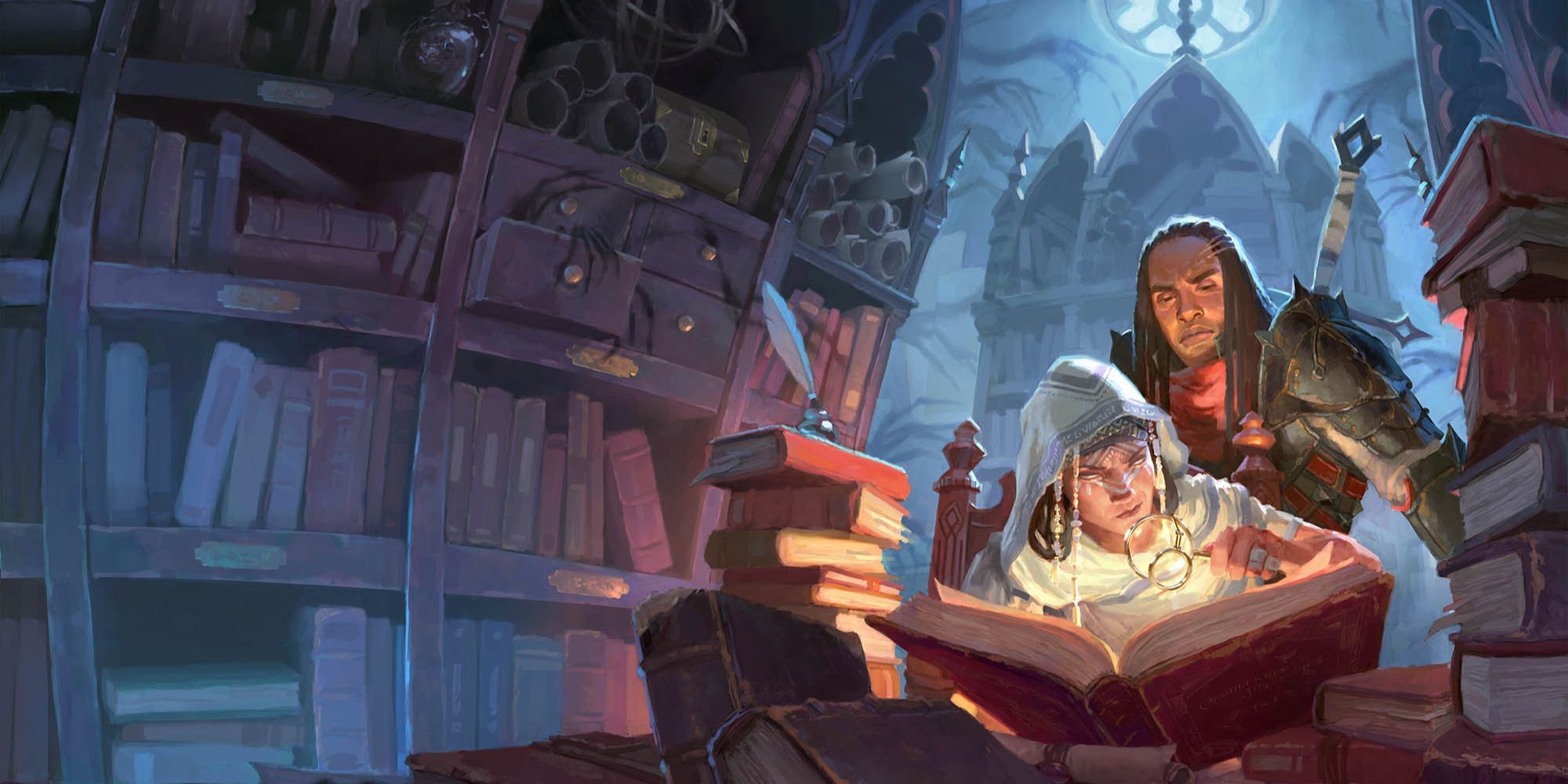You have to be a special kind of bananas to decide to write your own Dungeons & Dragons (D&D) campaign. Wizards of the Coast puts out plenty of great premade ones, so why go through the trouble? 'Well,' many people would respond, 'it allows me to be creative and tell my own story!' We absolutely agree. However, it's just a fact that worldbuilding is hard work. It's much harder than it looks and often gets little-to-no credit for its role in supporting a good story.
If you're looking to up your skills as a DM, the best advice we can give you is to keep working on your worldbuilding: the basic building blocks of a fictional universe, including its geography, weather, political groups, trade, economy, history, and so much more! Here, we're going to get you started with a few ideas about what you could add to a fictional world that will help it feel deeper than just a setting to fill with monsters.
5 Other Groups Of Adventurers
If you're positing a world where this group of adventurers can exist as a team, surely others must have had the same idea! Why not craft a team or two of other adventurers who might intersect with your players at certain places or story beats? It's also a great way to introduce reoccurring characters when your players need to call in backup for a job, for example, without having to invent new characters in your head on the spot. Just be sure that they don't become a point of unnecessary conflict between you and your party.
Bonus points if the players discover that their favorite team of adventurers has been working for the campaign's Big Bad Guy (BBG) all this time.
4 Permanent Repercussions
We all love video games that let you make choices which have lasting consequences on the game's characters, world, and story. When the science fiction RPG series Mass Effect ended the trilogy with a finale that boiled all of the games' decisions into three choices, fans were (understandably) pretty upset! With a free-form world like you find in D&D, it's especially important; the player isn't limited to the dialogue choices a game designer has programmed, they can say literally whatever they want!
It can suck when, as a player, you get the impression that the DM is telling a story and you're just watching it happen in real time. Trust us, we understand the temptation; as the DM, you spend a lot of time crafting cities, characters, mysteries, dungeons, only to hand it over to your players with no idea of how they'll treat it. It's like giving your child to a fourth cousin you found on Ancenstry.com to babysit.
The world should clearly change around the existence of the players. Don't be daunted quite yet; there are lots of small ways to show this! Maybe your players have all chosen unique races that are uncommon in the area, so children start approaching them on the street, in increasingly large groups, to ask them prying questions. Or, if they're all of the same race, maybe the local inn they frequent has started to try and make one of their cultural dishes to add to the menu. However, if you're someone who likes to push huge consequnces on your players, make the changes immense! Perhaps the Queen has hired them for a job, but being associated with such unsavory characters is ruining her reputation, and a coup begins! If your players have taken down a local, evil lord, what are the ripple effects in the community, the economy, or the neighboring lands?
3 The Passage Of Time
Occasionally, it can feel like players take forever to do anything! Sometimes you might enjoy that, because the roleplay is really good. Other times, they're just taking forever to do their shopping. Don't forget that the world is still turning, even while the party buggers off to do a side quest or something.
What might they have missed after being in that dungeon for a few days or weeks? Who might have died because the party wasn't around to protect them? How might power and influence have shifted? Has a young boy become old enough to take the throne from his mother, the Queen Regent? Will a forest begin to rot because the players keep leaving dead bodies lying around in it?
2 Plot-Relevant (Or Not) Events That The Players Aren't A Part Of
Hopefully, when running a homebrew campaign, you have an idea of what story beats you're going to follow, even if you're not solid on all the details yet. While you're planning, we'd like to advise you to remember to plan things that happen beyond the players' sphere of influence. It might be that the players could have gone and chose not to, or that they never knew about it at all, but either way, they'll hear about it - and the consequences - second hand.
This can be tied to the previous point about time passing, but we want to emphasize here that the players don't need to be involved in everything important that happens in your world. As the writer your own campaign, it's easy to become player-focused and forget that there are (probably) multiple groups at play in your story, all with their own understanding of a situation and their own plans to enact. Besides, why not just mention offhandedly that there was an earthquake in a far-off village, and make that the small-talk everyone starts off with for that session? That kinda thing isn't plot-relevant, but it's feels natural because that's what we do: we spread the news.
Bonus points if something horrible happened and you can give the players a sense that they could have been there, if they had only turned right instead of left, done this before that, made one itty bitty change to their plan!
1 Documents To Read
If you're a DM, you know how much exposition you need to do. Whether it comes in the narrative voice or out of the mouth of one of your NPCs, you constantly need to be informing the players about the world around them. Without that aspect, the game falls apart! A team can't find a dragon's weakness if the DM doesn't play the librarian, the alchemist, the blacksmith, and describe every place they go to in between. A murder can't be solved if the DM doesn't plant clues for the investigators to find, subtle enough not to jump out but severe enough to be noticed.
With all this work to do, you may be defaulting to letting the players talk to characters to learn new information. Have you considered providing them with documents instead? Children's stories could provide warnings about local monsters. Police reports might mention a lead they were going to follow. A diary would reveal a young man's secret crush who lives next-door. Creation is the human (/elf/dwarf/gnome/etc.) condition and, in some form or another, we always leave behind evidence of our existence in the world.
We just recommend that, if it's really important that your players find a document you've created, don't be stingy with where it's located. You can't know for sure which places your party will investigate thoroughly and which places they'll run in and out of like they're late for a meeting. Come up with a list of a few places it could plausibly appear.

